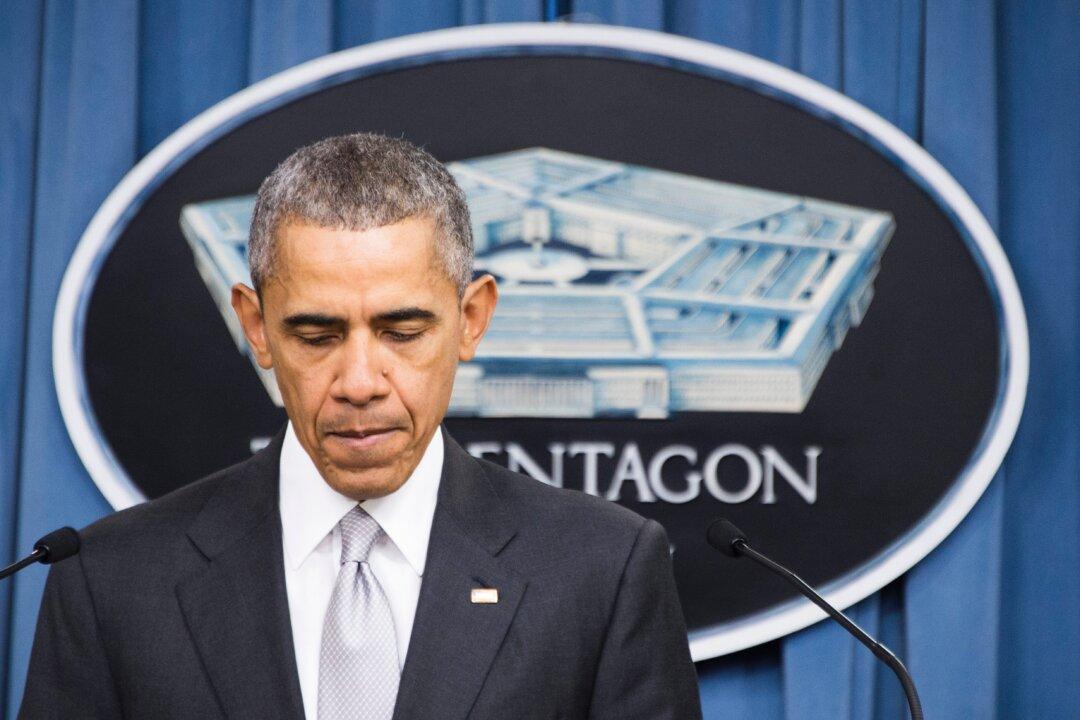WASHINGTON—President Barack Obama on Monday vowed to accelerate the U.S.-led military campaign against ISIS in both Syria and Iraq, implicitly acknowledging that progress has been too slow as the extremist group expands its reach with deadly attacks beyond the Middle East.
Speaking at the Pentagon after meeting with his National Security Council, Obama revealed that a group of American special operations commandos has begun working with local fighters in Syria to “tighten the squeeze” on Raqqa, the extremists’ nominal capital. He cited this as an example of aggressive new action, in addition to an intensified bombing of the oil infrastructure in Syria that provides much of the revenue of the Islamic State in Iraq and Syria (ISIS), also known as ISIL.
The administration announced in late October that Obama had approved sending up to 50 special operations troops to Syria on the first open-ended mission by U.S. ground forces in Syria. Until now, U.S. officials had refused to say whether the American commandos had begun their mission.
Obama said his strategy is moving ahead with “a great sense of urgency,” an assertion that critics say belies the slow pace of progress in Iraq and Syria. Drawing an implied contrast with military prescriptions offered by Republican presidential candidates, including Ted Cruz’s call to “carpet bomb them into oblivion,” Obama said, “We have to be smart, targeting ISIL surgically, with precision” airstrikes while local forces do the ground combat.
As national security takes center stage in the presidential race, Obama also is hoping to counter Donald Trump and his inflammatory remarks about Muslims, which Obama believes endangers U.S. national security.
On a conference call Monday with religious leaders, top White House officials pledged vigilance by the Justice Department in pursuing hate crimes and other civil rights violations, calling an attack on any faith an attack on all faiths. Obama’s aides were also holding separate meetings at the White House with Muslim leaders and with Sikh leaders.





